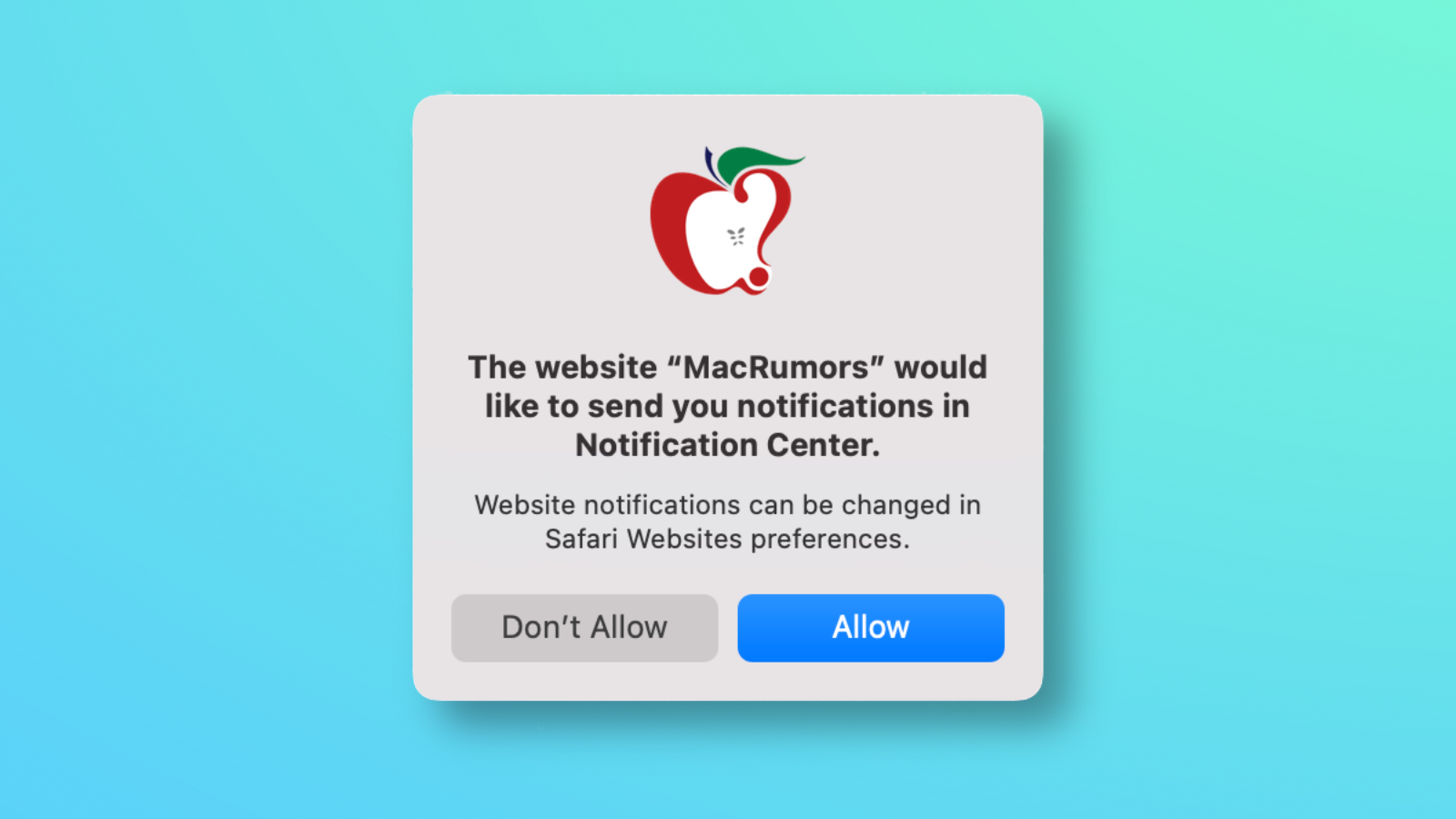With the first betas of iOS and iPadOS 15.4 released last week, Apple added a "Push API" toggle in the Experimental settings page for Safari, as spotted and explained by developer Maximiliano Firtman. As noted by Maximiliano, while the toggle is visible, the API itself is not yet enabled, and Apple has yet to implement a UI prompt into Safari on iOS to ask users for permission to display web-based notifications.
Unlike on macOS where web-based notifications are common, only apps downloaded through Apple's App Store can send notifications on iOS. With the inclusion of the "Push API" toggle in iOS 15.4, Apple is seemingly laying the groundwork for bringing web-based notifications to its mobile devices.
Web-based applications are designed entirely on the web, accessible through any browser with a URL. Web-based apps are not new, but the Epic Games v. Apple lawsuit has brought the experience of web-based apps on iOS and iPadOS into the spotlight. A key cornerstone of Epic's argument against Apple's control of the App Store and iOS ecosystem is the lack of choices for users on where to download apps.
In a submission to the ACCC (Australian Competition and Consumer Commission) in February of last year, Apple rebuffed Epic's claim that iOS users are limited in options for where to download apps. Specifically, Apple said that "the whole web is available to them," and iOS and iPadOS users have "unrestricted and uncontrolled access" to web-based apps.
"Web browsers are used not only as a distribution portal, but also as platforms themselves, hosting "progressive web applications" (PWAs) that eliminate the need to download a developer's app through the App Store (or other means) at all. PWAs are increasingly available for and through mobile-based browsers and devices, including on iOS," Apple said in a section of its submission titled "Distribution alternatives within the iOS ecosystem."
In a court filing dated May 2021, Epic specifically took issue with the limitations of WebKit, the framework on which all iOS and iPadOS browsers are based. Epic noted that web-based apps accessed through the browser lack access to APIs offered by native apps distributed through the App Store, such as PushKit, which enables notifications.

Safari prompt on macOS for web-based notifications
In the same filing, Epic claimed that in testimony, Apple's former vice president of developer relations, Ron Okamoto, could "not name a single developer that withdrew an app from the App Store because the developer could substitute to distributing a web app."
By bringing PushKit to WebKit for iOS and iPadOS, Apple could be seeking to bolster its argument that web-based applications are an alternative to apps from the App Store. The Epic vs. Apple lawsuit concluded in September with U.S. District Judge Yvonne Gonzalez Rogers ruling that Apple must allow apps to link to external payment methods for in-app purchases. Epic wanted the court to force Apple to support third-party App Stores, but that didn't happen.
While Apple is seemingly laying the early groundwork for implementing PushKit into WebKit for iOS and iPadOS, it remains unclear when we could see the API go live. We've reached out to Apple for more information.
Apple is currently testing iOS and iPadOS 15.4, the largest update to iOS and iPadOS 15 since its launch last fall. The first beta of iOS 15.4 includes the ability to use Face ID while wearing a mask, Universal Control, improved support for ProMotion on iPhone 13 Pro models, and more.
This article, "iOS 15.4 Beta Suggests Apple to Support Push Notifications From Web-Based Apps" first appeared on MacRumors.com
Discuss this article in our forums
0 Commentaires